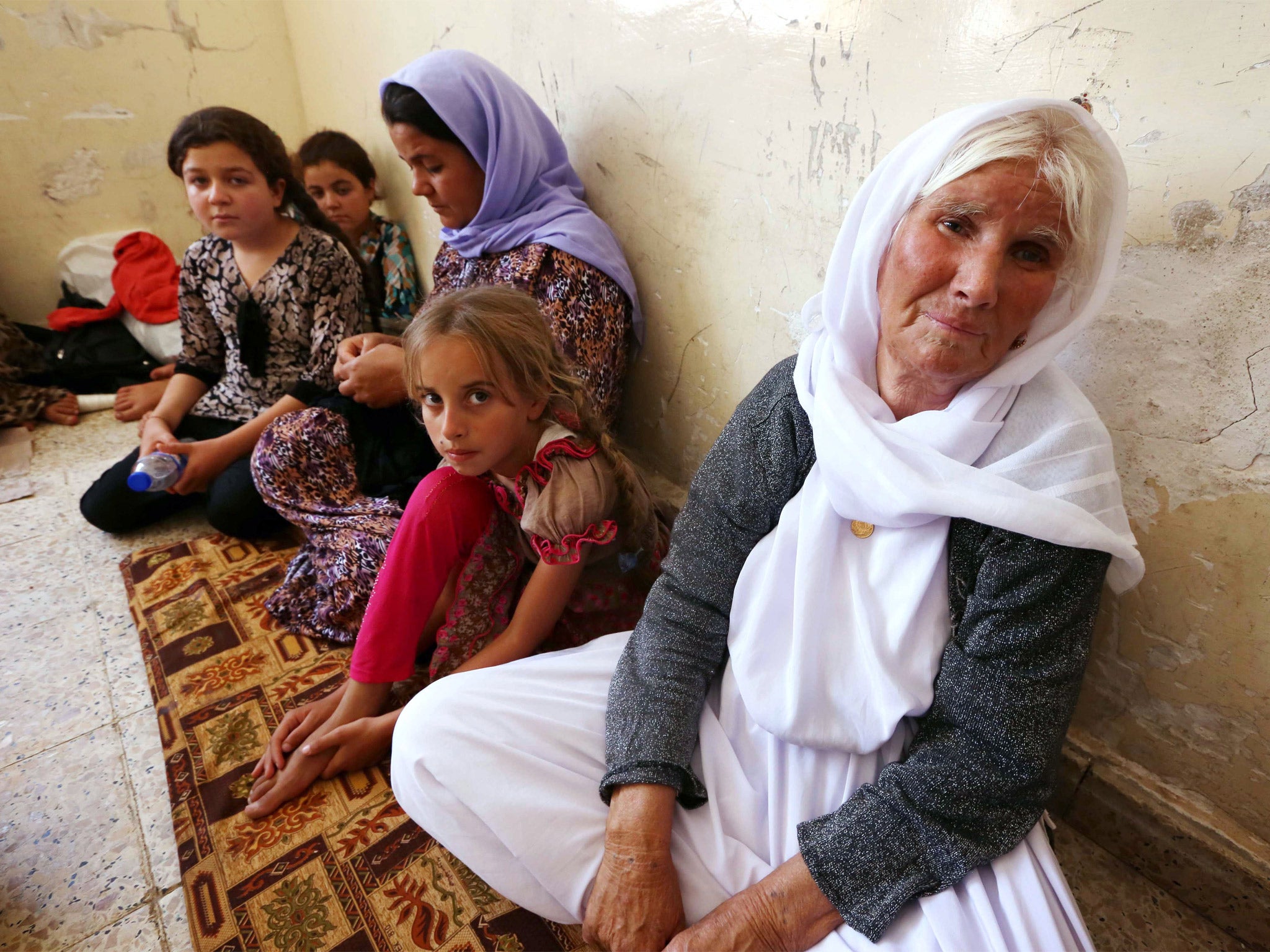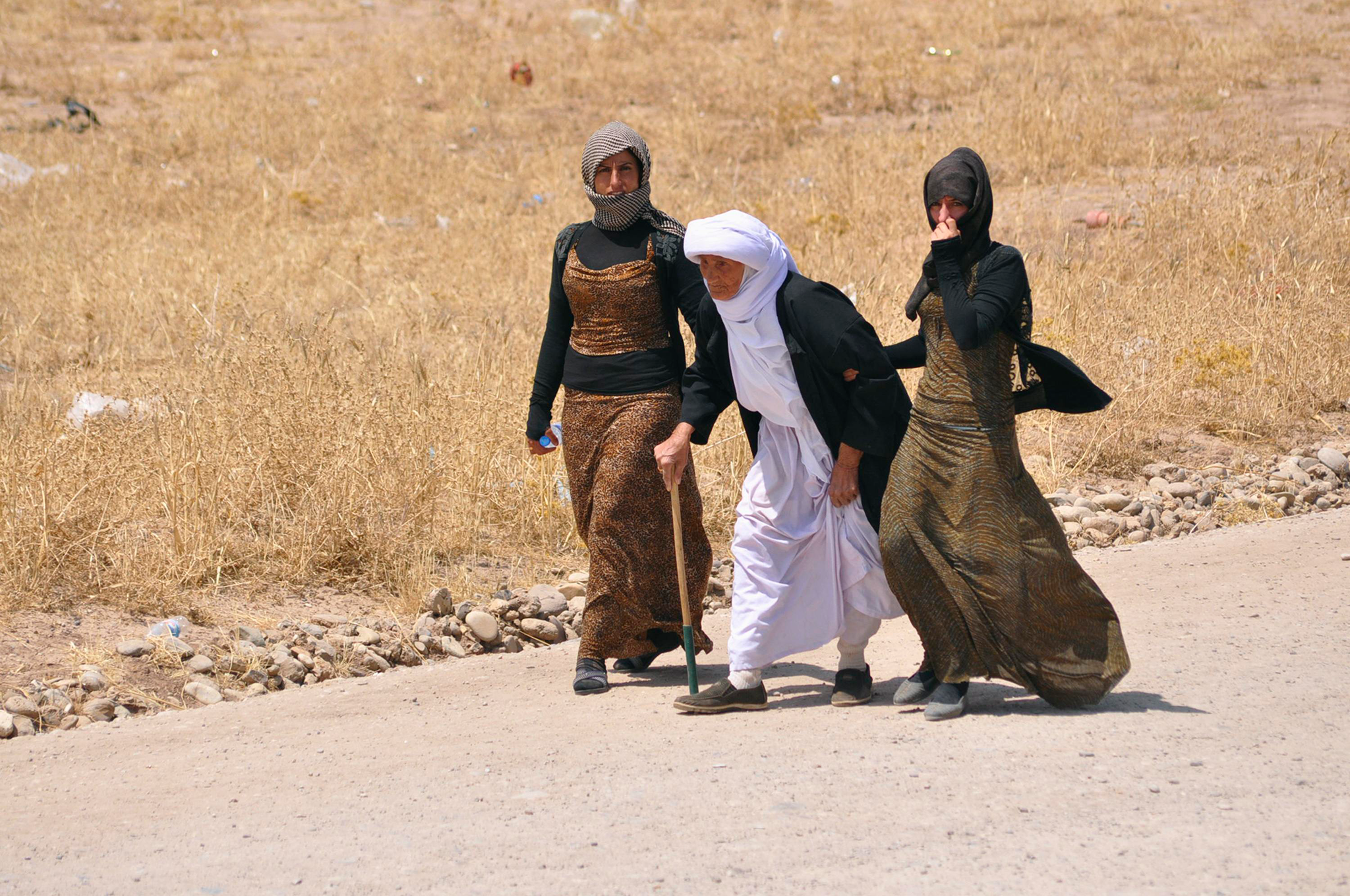Iraq crisis: UK rules out military intervention after US announces possible air strikes against Isis militants
David Cameron has called for international help for trapped Yazidis

Your support helps us to tell the story
From reproductive rights to climate change to Big Tech, The Independent is on the ground when the story is developing. Whether it's investigating the financials of Elon Musk's pro-Trump PAC or producing our latest documentary, 'The A Word', which shines a light on the American women fighting for reproductive rights, we know how important it is to parse out the facts from the messaging.
At such a critical moment in US history, we need reporters on the ground. Your donation allows us to keep sending journalists to speak to both sides of the story.
The Independent is trusted by Americans across the entire political spectrum. And unlike many other quality news outlets, we choose not to lock Americans out of our reporting and analysis with paywalls. We believe quality journalism should be available to everyone, paid for by those who can afford it.
Your support makes all the difference.David Cameron has welcomed possible US air strikes against Islamist militants in Iraq as his office rules out British military intervention.
The Prime Minister called for international aid for thousands of people from Iraq’s Yazidi religious minority who are trapped up a mountain and face slaughter at the hands of the Islamic State of Iraq and the Levant (Isis) or starvation.
Barack Obama answered the Government’s call for help in the escalating crisis and said the US military will conduct air strikes if necessary to help Iraqi forces "fight back" to free the civilians on Mount Sinjar.
"I fully agree with the President that we should stand up for the values we believe in - the right to freedom and dignity, whatever your religious beliefs," Mr Cameron said.
"I have tasked officials to urgently establish what more we can do to provide help to those affected, including those in grave need of food, water and shelter in the Sinjar area."
Condemning the “barbaric” attacks by Islamic militants who have swept across the region and gained control of several towns and villages, he said he was “especially concerned” for the Yazidi community.

The minority sect melds parts of ancient Zoroastrianism with Christianity and Islam and followers are considered by the al-Qa’ida-inspired Isis to be devil worshippers and apostates.
Humanitarian agencies have estimated that between 10,000 and 40,000 civilians remain trapped on Mount Sinjar since being driven out of surrounding villages and the town of Sinjar on Sunday.
Unable to find water or vegetation, many children and elderly people have already died and families unable to dig into the rocky mountainside are having to bury loved ones shallow graves, their bodies covered with stones.
Downing Street has confirmed there will be no UK military action in Iraq, saying “we are not planning a military intervention”.
"We welcome the action taken by the United States overnight to provide vital supplies to those Iraqis in desperate need who are fleeing from Isil terrorists," a spokesman said.
“It is essential that those trapped are now allowed to reach a place of safety where they can continue to be provided with food, water and life-saving assistance and it is appalling that Isil are preventing them from doing so.
"Isil has a poisonous record of destruction and murder of innocent people of all faiths, including their own.”
The Sunni extremist group has targeted Shia Muslims, Christians and other minorities in its bloody campaign to establish an Islamic Caliphate in northern Iraq.
The UK chaired a meeting of the United Nations Security Council on Thursday night to discuss what more can be done to protect civilian lives and to stop the advance of Isis.
Sir Malcolm Rifkind, chairman of the Intelligence and Security Committee, said the US was right to intervene.
The Conservative MP and former Foreign and Defence secretary, told Radio 4's Today programme: "The United Nations has what is often referred to as a responsibility to protect.
“That's a general statement but means when you have some potential humanitarian disaster on a vast scale then you can't just sit back and say how sad it is, you have to try and intervene.”
Sir Malcolm, who opposed the Iraq War in 2003, said it was too simplistic to blame the current instability on the invasion but that “there is no doubt that war and the aftermath of it caused a fundamental split between the Sunni and Shia population, created instability and ungovernability in many places in Iraq and therefore has certainly contributed to the terrible drama we're seeing at the moment”.
Additional reporting by PA
Join our commenting forum
Join thought-provoking conversations, follow other Independent readers and see their replies
Comments